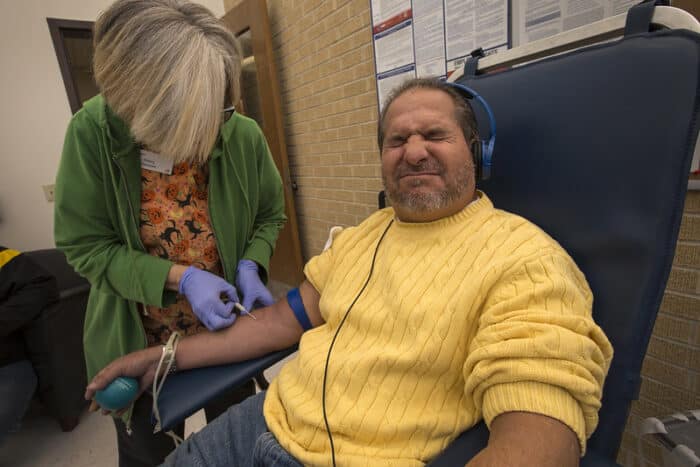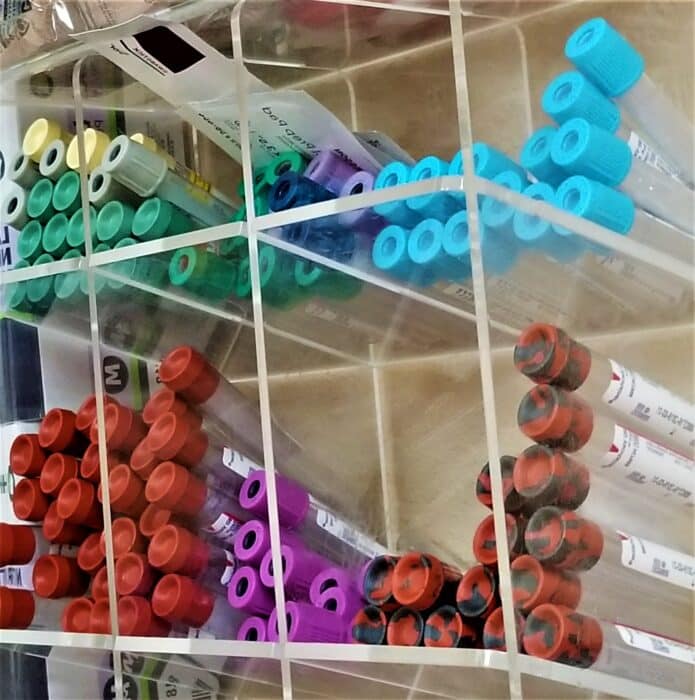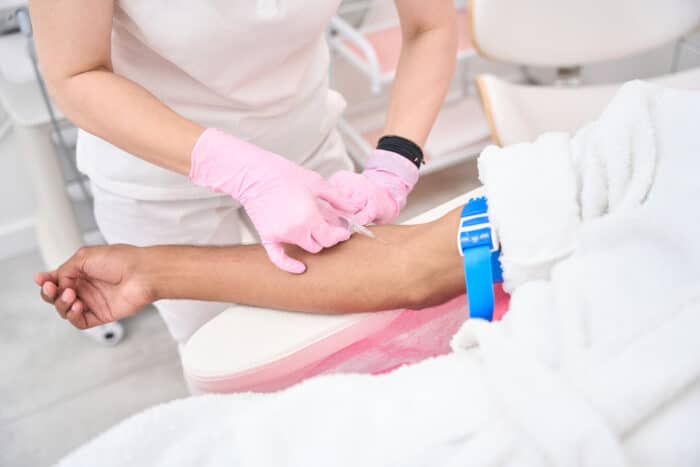If you’re an aspiring phlebotomist, you might have wondered what the different types of phlebotomists there are before jumping into the career.
If you’re someone who is also interested in pursuing a career in healthcare and helping people, becoming a Phlebotomy Nurse might be the best career choice for you.
But what is a Phlebotomy Nurse? And what do they do?
We’ll answer all such questions and more. We will also uncover how much Phlebotomist nurses make.
So, let’s get started!
What is a Phlebotomist Nurse?
Let’s start with the basics. Phlebotomist Nurses are talented individuals who are often overlooked heroes in the world of healthcare. Their main focus is drawing blood from patients for medical purposes.
The ultimate goal is to make the process as easy and painless as possible, which is why Phlebotomist Nurses are such an important part of the patient experience. You can find them working in a variety of healthcare settings, from hospitals and clinics to laboratories and mobile blood donation units. They are always there to greet you with a smile and ensure that your blood test or donation goes as smoothly as possible.
Read: What is a Phlebotomist
Duties of a Phlebotomist Nurse
Now that you know what a Phlebotomist Nurse is, you might be wondering what these heroes do, and what falls under their roles and responsibilities.
Let’s find out.
Blood Collection:
The main duty of a phlebotomist is phlebotomy, or drawing blood, as the name suggests. Phlebotomists have to use various techniques such as venipunctures to draw and collect blood samples, and they also need to ensure accuracy and minimize discomfort experienced by patients.
Patient Interaction:
Phlebotomist Nurses frequently help alleviate the anxiety of nervous patients, offering more information about procedures, responding to queries, and extending emotional support for patients who might be hesitant with blood work.
Labeling and Record-Keeping:
Being very accurate is super important in healthcare, so Phlebotomist Nurses are very careful when they label and write down information about blood samples. This helps prevent mistakes in the lab.
Infection Control:
Phlebotomists have strict rules to keep everything very clean and germ-free. This helps keep both patients and themselves safe.
Equipment Maintenance:
Phlebotomist Nurses are responsible for taking care of their tools, like needles and collection tubes, by cleaning and keeping them in good shape.

Do You Want To Become a Phlebotomist? Check Out Free Phlebotomist Masterclass!
In our masterclass you learn:
- How to be a Phlebotomist faster…in just 2 months!
- Avoid student debt & driving to classes
- #1 thing employers want from Phlebotomists
- How to stand-apart & get a university certificate for a strong resume
Phlebotomist Nurse Salary
Now, let’s dive into the main topic: how much they earn. When it comes to how much Phlebotomist Nurses earn, it can vary a little. There are some influencing factors like where they work, how long they’ve been doing the job, and their education that can all affect their pay.
But, overall, it’s a pretty steady and satisfying career choice. In the USA, according to the U.S. Bureau of Labor Statistics (BLS), the typical yearly pay for phlebotomists was around $36,000.
See: Phlebotomist Salary
But, keep in mind that pay can be really different depending on which state you’re in and where you work in healthcare. Some places might pay more because they really need phlebotomists, or because it’s more expensive to live there, or because they specialize in certain parts of healthcare.
Read: How to Become a Phlebotomist
Is a Phlebotomist a Nurse?
This question often pops up in the minds of aspiring phlebotomists, and the answer can be a bit of a mix. Phlebotomist Nurses aren’t quite the same as registered nurses (RNs) or licensed practical nurses (LPNs).
Phlebotomist Nurses don’t deliver patient care to the same extent as these nursing positions. But, they’re still valuable members of the healthcare team and have a vital role in taking care of patients. So, even though they aren’t your typical “nurses,” they are an essential piece of the healthcare team.
See: Phlebotomist Skills
Conclusion
Phlebotomist Nurses are super important in healthcare. They help by safely taking your blood when needed. They’re really nice and make sure you feel comfortable during the process.
All in all, Phlebotomist Nurses are like healthcare heroes. They care about you and make sure your blood tests go smoothly. Their hard work helps doctors treat you better and keep you healthy.
Related Resources:
- Day in the Life of a Phlebotomist
- Phlebotomist Job Description
- Phlebotomist Duties
- What is the Difference Between a Licensed Phlebotomist and Certified Phlebotomist?
- Pros and Cons of Being a Phlebotomist
- How To Get a Phlebotomy Certification
- What are the Different Types of Phlebotomy Certifications?
- Top Places That Hire Phlebotomy Techs
- Phlebotomist vs CNA
- Therapeutic Phlebotomy
- Phlebotomy Course
- Phlebotomist School
- Online Phlebotomy Classes
- Order of Draw Phlebotomy
- Phlebotomy Internship
- 4-Week Phlebotomy Classes Online
Related Articles
-
How to Be Successful in College in 2022 – 7 Simple Tips to Succeed
-
How Do Scholarships Work? Read This First…Truth is Shocking
-
7 Best College Majors 2024: What Should I Major In?
-
How to Choose a College – 10 Things You Must Consider in 2024
-
Why Go to College? Top 13 Benefits for Adult Students in 2022
-
Top 5 Best Alternatives to Community College for 2024








